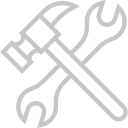A UTI is an infection that affects the urinary tract.
Advice on preventing a urinary tract infection: Information for children and families

Urinary tract infection (UTI for short) is one of the most common bacterial diseases in children. It is important that we try to prevent further urinary tract infections as recurrent UTIs may lead to problems in the future.
In order to prove that a UTI is present, we would send a sample of urine to the laboratory. There are different ways to collect a urine sample:
MSU - Midstream Specimen of Urine. For older children we ask them to pass some urine down the toilet, stop, and then pass the remainder of the urine into a sterile bowl. We do this because there can be bacteria around the entrance of the urethra.
CCU - Clean Catch Urine. This may require some patience. We collect urine in a sterile bowl which the clinic provides. It is important to keep fingers away from the inside of the bowl.
Please note: it is important to understand that on occasions urine specimens may be contaminated with bacteria from around your child's bottom, and in fact, your child may not have had a urinary tract infection after all.
Dysuria - pain, a burning feeling or crying when your child passes urine. They may be reluctant to go to the toilet.
Frequency and Urgency - your child may feel the need to go to the toilet urgently and may go more often.
Haematuria - you may notice that their urine is pink in colour or that there are small clots of blood.
Incontinence - wetting accidents may happen due to feelings of urgency.
Your child may also suffer from tummy or back pain. Their urine might also be cloudy and smelly.
In severe infection, which may involve the kidneys, your child may have a fever, severe tummy or back pains, vomiting and be generally unwell.
- You should encourage your child to drink 1½ ro 2 litres of fluid every day. The best drinks are water of very dilute juice. It is best to avoid fizzy drinks.
- Encourage your child to pee 5-6 times every day. Make sure that they take their time to empty their bladder. If their feel don't reach the floor, use a stool for support.
- Encourage your child to use the toilet at break times during school.
- Avoid bubble bath, soap and baby wipes if they are prone to irritation.
- Girls should wipe from front to back.
- Boys should keep their foreskin clean, as this may be a source of infection.
- Wear loose cotton underwear.
Avoid constipation
Children who are constipated may not empty their bladder properly.
Often parents do not know that their child is constipated, but if you suspect it, ask your nurse or doctor for dietary advice. Your child should have a healthy, well balanced diet, including high fibre foods such as wholemeal bread and cereals, with lots of fresh fruit and vegetables.
Your doctor may prescribe laxatives, but these are not a long-term solution.
When your child begins nursery or school, they can forget about hygiene and going to the toilet regularly. Any change in circumstances can upset your child's routine.
The majority of children with urine infections have no problems and the kidneys remain perfectly healthy. However, it is important that they have a renal ultrasound scan to detect any problems.
- Ultrasound scan (renal) - this scan involves placing jelly on your child's tummy and bak. We will use a probe to see the outline of the kidneys and bladder. Then we ask your child to pass urine and take a further scan to see if they empty their bladder completely.
Your child may have other scans (if indicated by the renal ultrasound). These are:
- DMSA - (Di Mercapto Succinic Acid) This scan is to see if there is any scarring in the kidneys. It involves inserting a tiny plastic tube (cannula) in your child's hand.
We insert a very small dose of isotope (this is like a dye which shows up on the scan) through this tube into a vein. 2 hours later they will have another scan. - MAG 3 (Mercapto Acetyl Triglycine) This scan is to observe the kidney blood supply, kidney function and to see if there is any blockage of reflux (backflow from the bladder to the kidney).
This also involves the insertion of a tiny plastic tube (cannula) and a very small amount of isotope being administered through a vein. Your child will have a scan and we may ask them to pass urine during the scan. - MCUG - (Micuturating Cystourethrogram) This is for very young children and involves a small tube (catheter) being passed into the bladder and the injecting a small amount of dye through the tube. We will take X rays of your child's bladder to see if there is any blockage or reflux (backflow).
For any of the above scans, if we need to insert a cannula, then we will numb the back of your child's hand by using a cold spray.
If you have any questions or concerns, please do not hesitate to contact the Urinary Tract Infection Service and speak to:
Eileen Fern on 0141 452 4914 or
Evelyn Thomas on 0141 452 4913
who will be happy to help you.
